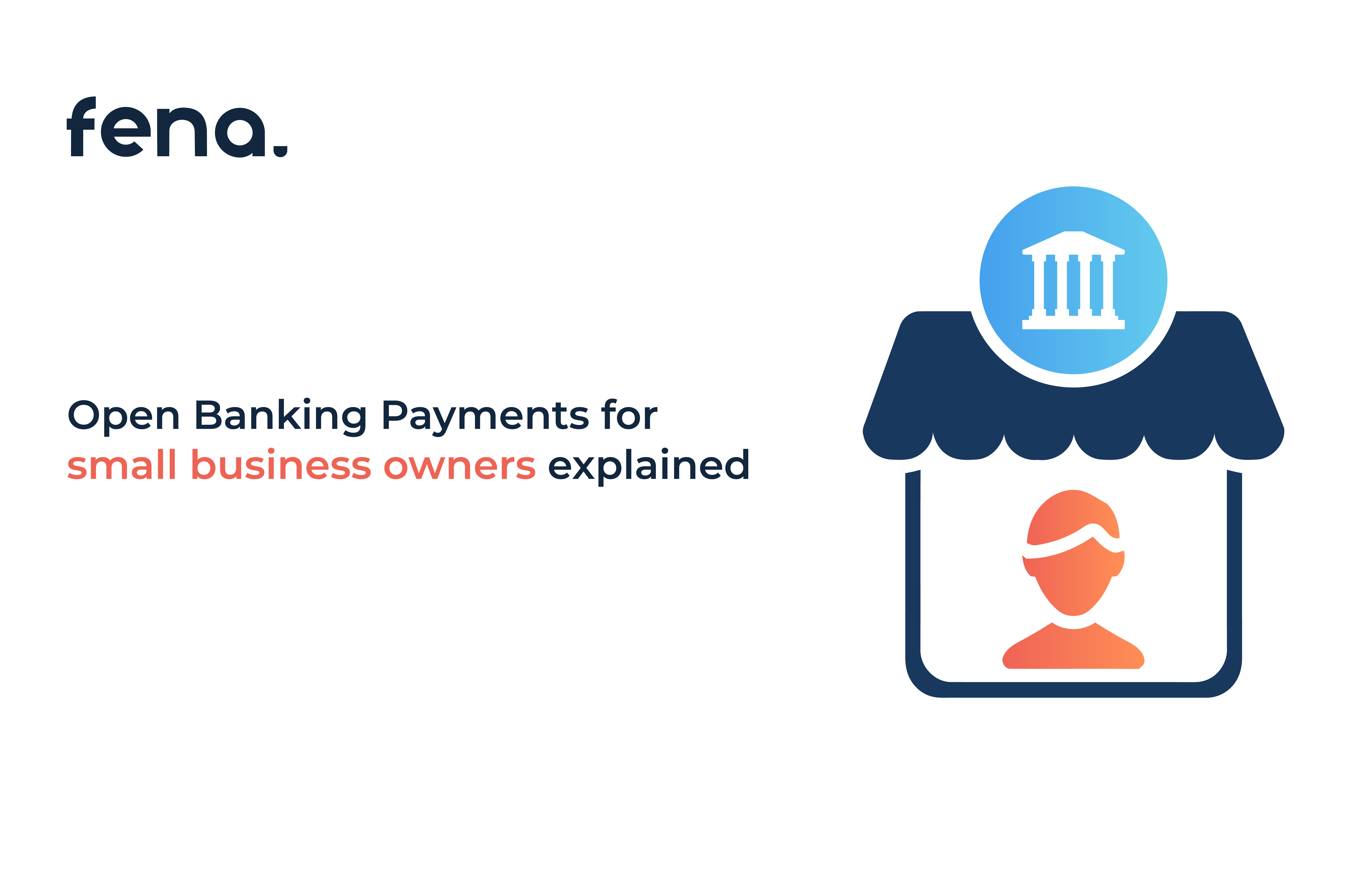Open Banking Payments for small business owners explained
by Gosia Furmanik on October 13, 2022

Open Banking payments are a new way of making and receiving payments for goods and services that allows individuals and businesses to securely move money between their bank accounts without exchanging any bank details. This means that rather than relying solely on traditional payment methods like cash, checks, or credit cards, businesses can use Open Banking to accept payments directly from their customers' bank accounts.
The way it works is that when a customer wants to pay for a product or service, they can use an Open Banking-enabled payment service to authorise a direct transfer of funds from their bank account to the business's bank account. This is made possible by the use of APIs (Application Programming Interfaces) that allow different financial institutions (like your bank) and third-party providers (that’s us - fena) to communicate and exchange information securely and efficiently.
Open Banking payments offer several benefits for small businesses. One of the main benefits is the low cost of processing payments. Open Banking payments tend to have lower fees associated with them. For instance, fena offers fees of 0.3% saving SMEs up to 85% on their payment processing fees as compared to card payments.
Plus, they are typically faster and more secure than traditional payment methods, as funds are transferred directly between bank accounts without the need for intermediaries. They also offer greater flexibility and control, as businesses can access a wider range of payment services and providers, and have more transparency and visibility over their cash flow.
To start using Open Banking payments, a small business owner would need to choose an Open Banking-enabled payment service provider and set up an account. They would then need to integrate the provider's API into their website or point-of-sale system to allow customers to make payments. This can typically be done with the help of a developer or using pre-built plugins and tools provided by the payment service provider. In case of fena, we offer a suite of ecommerce plug-ins across a wide range of platforms including Woocommerce, Prestashop, Magento, Opencart, Shopify and more.
Moreover, Open Banking payments offer small businesses a range of use cases that can help simplify and streamline the payment process, making it easier and more convenient for both the business and its customers.
There are several common use cases for using Open Banking payments as a small business, including:
Online payments: Small businesses that operate online can use Open Banking payments to accept payments directly from their customers' bank accounts. This can be done through a payment gateway that integrates with the business's website or e-commerce platform, making it easier and more convenient for customers to make purchases.
Subscription services: If your small business offers subscription-based services, Open Banking payments can be a convenient way for customers to pay for their ongoing subscriptions. Rather than having to manually pay each month, customers can authorise an automatic standing order from their bank account, simplifying the payment process for both parties. Fena is launching a new recurring payments product that utilises standing orders for regular payment collection and takes advantage of Account Information APIs for transaction monitoring. You can learn more about it on this landing page.
Point-of-sale payments: Small businesses that operate from a physical location, such as a shop or restaurant, can use Open Banking payments to accept payments at the point of sale. This can be done through a mobile app or device that connects to the business's bank account, making it easier and faster for customers to pay and reducing the need for cash or card payments. If you want to try it out, download our Fena Business app from AppStore or Google Play STtore and
Invoice payments: Small businesses that send out invoices to their customers can use Open Banking payments to simplify the payment process. Rather than having to wait for a customer to manually pay their invoice, businesses can include a payment link in the invoice that allows customers to authorise a transfer from their bank account. We, too, make this feature available for our clients via the Business Portal.
Pay by Link: If a small business owner receives orders from social media or directly on the phone, Pay By Link is a great alternative to taking card payments over the phone. Card payments when a card is not present (like those over the phone) tend to demand a fee premium increasing costs of payment processing for an SME. On fena’s Business Portal, you can generate a quick payment linked power by Open Banking. Our Pay by Link fees are only 0.3%.
Overall, Open Banking payments offer small businesses a new and innovative way to accept payments, with greater security, flexibility, and control.